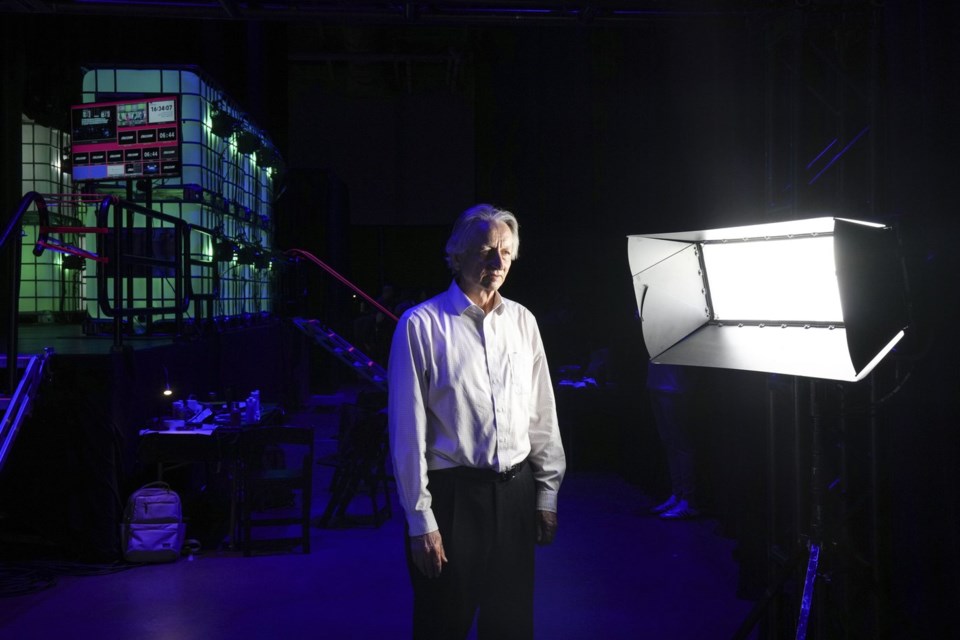Geoffrey Hinton was awarded a Nobel Prize in physics on Tuesday in recognition of his trailblazing contributions to the field of artificial intelligence.
The British-Canadian researcher, known as the Godfather of AI, has spent much of his career at the University of Toronto. Hinton, who shares the prize along with Princeton University researcher John Hopfield, was honoured "for foundational discoveries and inventions that enable machine learning with artificial neural networks."
Here is a list of Canadians who have won the Nobel Prize.
1923: Frederick G. Banting, medicine, for the "discovery of insulin"
1949: William F. Giauque, chemistry, for "contributions in the field of chemical thermodynamics, particularly concerning the behaviour of substances at extremely low temperatures"
1957: Former prime minister Lester Bowles Pearson, peace, for his role in defusing the 1956 Suez crisis
1966: Charles B. Huggins, medicine, for "his discoveries concerning hormonal treatment of prostatic cancer"
1971: Gerhard Herzberg, chemistry, for "his contributions to the knowledge of electronic structure and geometry of molecules, particularly free radicals."
1976: Saul Bellow, literature, for "the human understanding and subtle analysis of contemporary culture that are combined in his work"
1981: David H. Hubel, medicine, for "discoveries concerning information processing in the visual system"
1983: Henry Taube, chemistry, for "his work on the mechanisms of electron transfer reactions, especially in metal complexes"
1986: John Polanyi, chemistry, for "contributions concerning the dynamics of chemical elementary processes."
1989: Sidney Altman, chemistry ,for "discovery of catalytic properties of RNA
1990: Richard E. Taylor, physics, for "investigations concerning deep inelastic scattering of electrons on protons and bound neutrons, which have been of essential importance for the development of the quark model in particle physics"
1992: Rudolph A. Marcus, chemistry, for "his contributions to the theory of electron transfer reactions in chemical systems"
1993: Michael Smith, chemistry, for "his fundamental contributions to the establishment of oligonucleotide-based, site-directed mutagenesis and its development for protein studies."
1994: Bertram N. Brockhouse, physics, for "the development of neutron spectroscopy"
1996: William Vickrey, economic sciences, for "contributions to the economic theory of incentives under asymmetric information"
1997: Myron S. Scholes, economic sciences, for "a new method to determine the value of derivatives"
1999: Robert A. Mundell, economic sciences, for "his analysis of monetary and fiscal policy under different exchange rate regimes and his analysis of optimum currency areas"
2009: Willard S. Boyle, physics, for "the invention of an imaging semiconductor circuit - the CCD sensor"
2011: Ralph M. Steinman, medicine, for "his discovery of the dendritic cell and its role in adaptive immunity"
2013: Alice Munro, literature, for being the "master of the contemporary short story"
2015: Arthur B. McDonald, physics, for "the discovery of neutrino oscillations, which shows that neutrinos have mass"
2018: Donna Strickland, physics, for co-developing a "method of generating high-intensity, ultrashort optical pulses"
2019: James Peebles, physics, "for theoretical discoveries in physical cosmology," laying out the chemical makeup of the universe at its beginning and later explaining the way that galaxies are formed
2021: David Card, economic sciences, "for his empirical contributions to labour economics"
2024: Geoffrey Hinton, physics, "for foundational discoveries and inventions that enable machine learning with artificial neural networks"
This report by The Canadian Press was first published Oct. 8, 2024.
The Canadian Press



